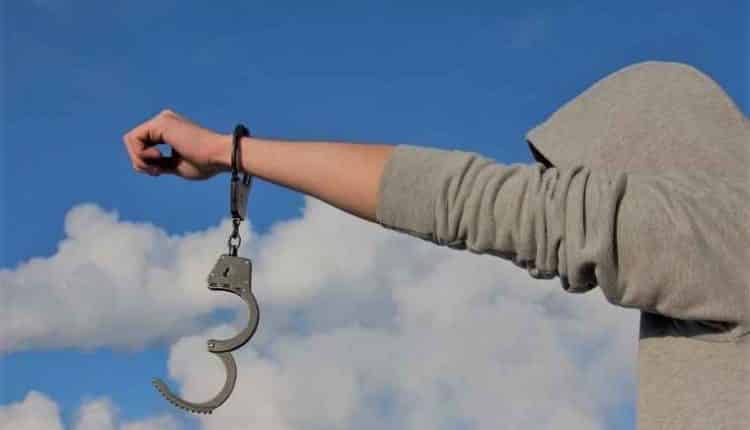Illicit drug use is a complex psychological phenomenon; therefore, it should not be surprising that the drug detoxification interaction may be just as unexpected. Most drug detoxification programs entail the removal of medications or alcoholic beverages from th body. The phrase “drug detoxification” refers to various acute and chronic drug treatment methods, including pharmaceutical management. Factors like sociodemographics, psychological reliance, socioeconomic position, and other complex behavior patterns associated with addiction and drug detoxification are rarely examined in a program that offers physical detoxification. So here, we will examine how a center like Legacy Behavioral Health Baton Rouge can help you with your drug detox and be your savior.
Every year, the Monitoring the Future Survey collects data from kids in schools across the United States. According to the survey’s 2019 findings, 14.8 percent of class eight pupils, 31.0 percent of tenth graders, and 38.0 percent of twelfth graders reported taking illegal substances in the previous year. Cocaine, methamphetamine, and synthetic cannabinoids are all examples of this.

Despite its tough drug regulations and harsh punishments, the United States has a high rate of lifetime illegal drug usage. According to 2018 research, the United States has one of the highest rates of illegal drug users globally. However, Eastern European countries have the greatest rates of alcohol use.
Drug detoxification, a therapeutic consequence of medication therapy, will enhance substance abuse response on a large scale, lowering medication misuse. According to the WCRF, the drug detoxification procedure may make it easier for a substance abuser to go through the severe withdrawal stage of addiction therapy before moving on to treatment. Detoxification is an important component of withdrawal, but getting off drugs is only one element of the recovery process; remaining clean takes patience and commitment to avoid relapse.
How Does Drug Detoxification Help?
Did you know that in the United States, almost 50,000 individuals died from opioid-related overdoses in 2019? Opioid abuse and addiction, which includes prescription pain medications, heroin, and synthetic opioids like fentanyl, is a prevalent national issue that harms public health and social and economic well-being. So to reduce these cases, Drug Detoxification is becoming more prevalent. Let’s know the benefits it yields to make yourself more aware and help your loved ones.

Benefits of Legacy Behavioural Baton Rouge
1. Increases the chances of recovery
When a person is into substance abuse or is addicted to any type of drug, they often become physiologically dependent. When people are physically dependent on a drug, they experience withdrawal symptoms when they stop using it.
The degree and kind of withdrawal symptoms vary. Some medications have minor side effects, such as agitation or discomfort. Other side effects, such as acute dehydration and seizures, can have significant consequences. As a result, medical detox improves the likelihood of a successful recovery.
2. It is a Withdrawal Therapy
The objective of detoxification, often known as “detox” or withdrawal therapy, is to help you quit using an addictive substance as fast and securely as possible. It may be safe for some people to go through withdrawal therapy on an outpatient basis. Others may require hospitalization or therapy in a residential treatment facility.
Withdrawal from various drugs, such as depressants, stimulants, and opioids, has distinct adverse effects and necessitates different treatments. A detox may entail gradually lowering the drug’s dose or temporarily replacing alternative drugs such as methadone, buprenorphine, or a buprenorphine-naloxone combination.
3. Use of Behaviour therapy
Behavior therapy, a type of psychotherapy, can be provided by a psychologist or psychiatrist as part of a drug treatment program, or you can seek counseling from qualified alcohol and drug counselor. Individual, family, and group therapy and counseling are all options. The therapist or counselor can:-
- Assist you in developing coping mechanisms for your drug urges.
- Suggestions for avoiding drugs and preventing relapse.
- Provide advice on how to deal with a relapse if it happens.
- Discuss work-related difficulties, legal challenges, and relationships with family and friends.
- Include family members to assist them in improving their communication skills and to provide support.
- Other mental health issues should be addressed.
4. Emotional and Social Support
Positive social support plays an important role in the success of a drug treatment program, as well as in maintaining your concentration after you’ve completed it. Family, friends, and others should be involved in your treatment process through family therapy or by accompanying you to social support organizations such as Alcoholics Anonymous.
Social support has been proven to be an important component of drug addiction treatment and relapse prevention. Despite this, little scientific study has been done to determine how social support affects drug misuse treatment and participation.
A patient’s family may show their support for an addict’s rehabilitation by providing tangible help, such as transporting them to a doctor’s appointment or caring for their children while they seek professional help.
5. Enhance Your Health
Personal trainers have been a key factor in addition to media outlets promoting the need to eat healthy food to lose weight and reduce calories. Several people have begun a drug detoxification program to drop some physical weight temporarily.
The greatest approach to regulate and enhance the quality of your health and general wellness is to devote time and energy to improving the quality of your life. Regardless, if you consider drug detoxification benefits as a weight-loss strategy while maintaining a balanced eating regimen and continuous exercise program, you may find that your lifestyle enhances in the long term.
6. Augment Your Mental Health
Drug detoxification allows you to think more clearly and precisely, helping you face life’s difficulties with greater clarity. Drug detoxification helps enhance the mental health of the drug addict and help them achieve physical and mental well-being in the long run.
Wrapping Up
In truth, addiction is a chronic disease in which relapse is a distinct possibility. To overcome an addiction, an individual may require more than one stay at a drug treatment clinic. The treatment center is a location to return to and get back on track in this situation.
Traditional quick detox procedures take two to three days to complete and are safer than traditional detoxes, but they are still more expensive. It can cost up to $10,000 and is usually not covered by health insurance.
The majority of people who finish quick or ultra-rapid detox indicate that withdrawal symptoms persist, albeit to a lesser degree. Rapid or ultra-rapid detox patients are considerably less likely to finish their therapy than inpatient or outpatient rehab. As a result, people are less likely to focus on relapse prevention, co-occurring mental health disorders, or long-term planning, and hence are more likely to relapse.
